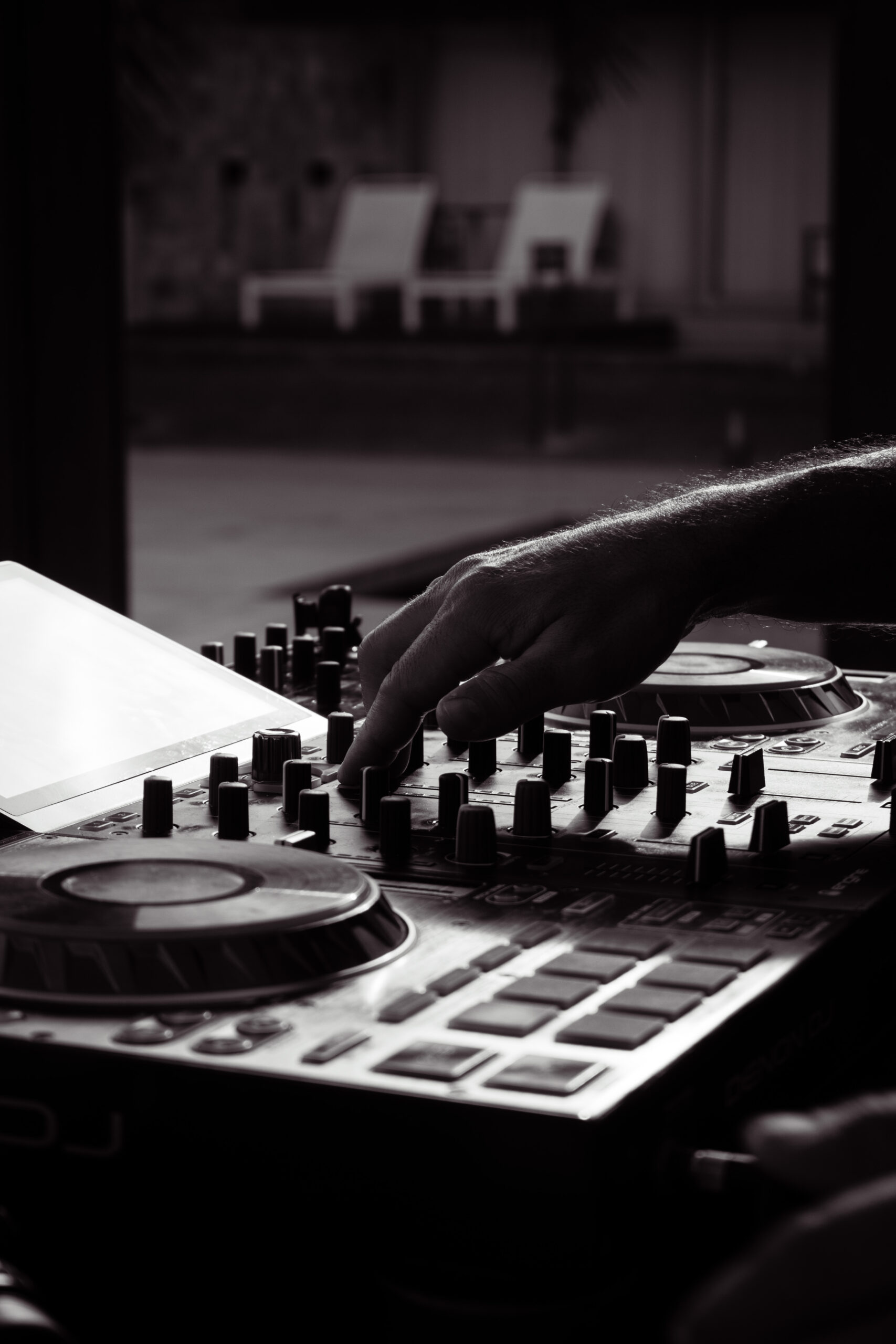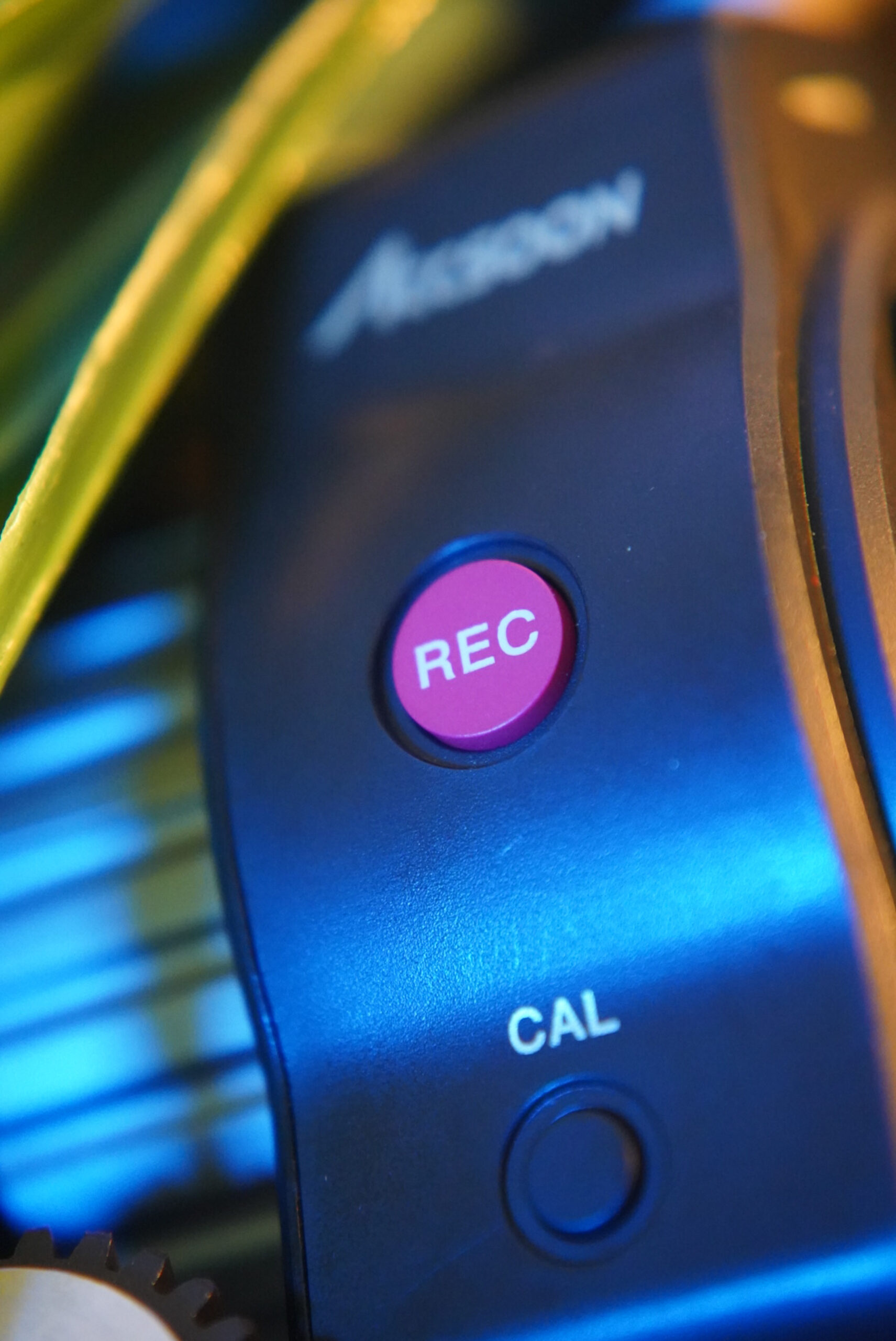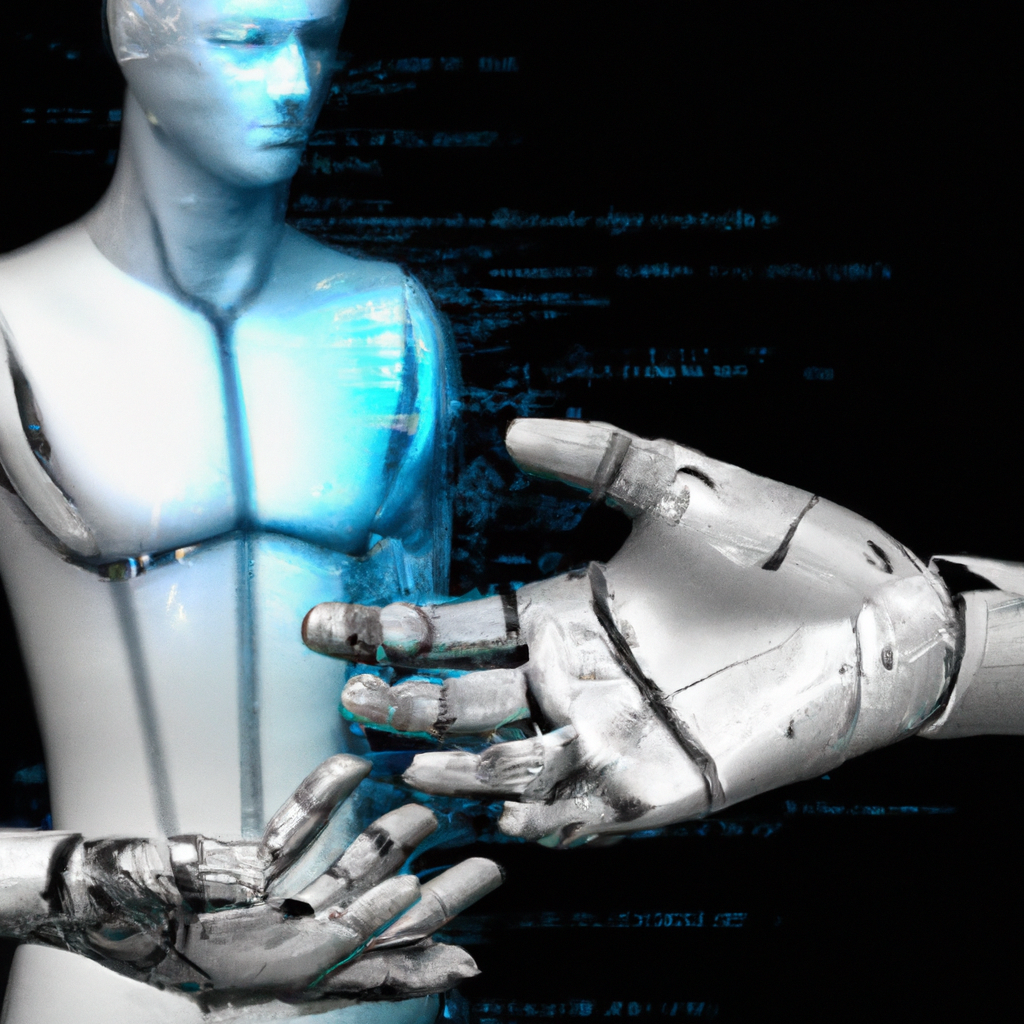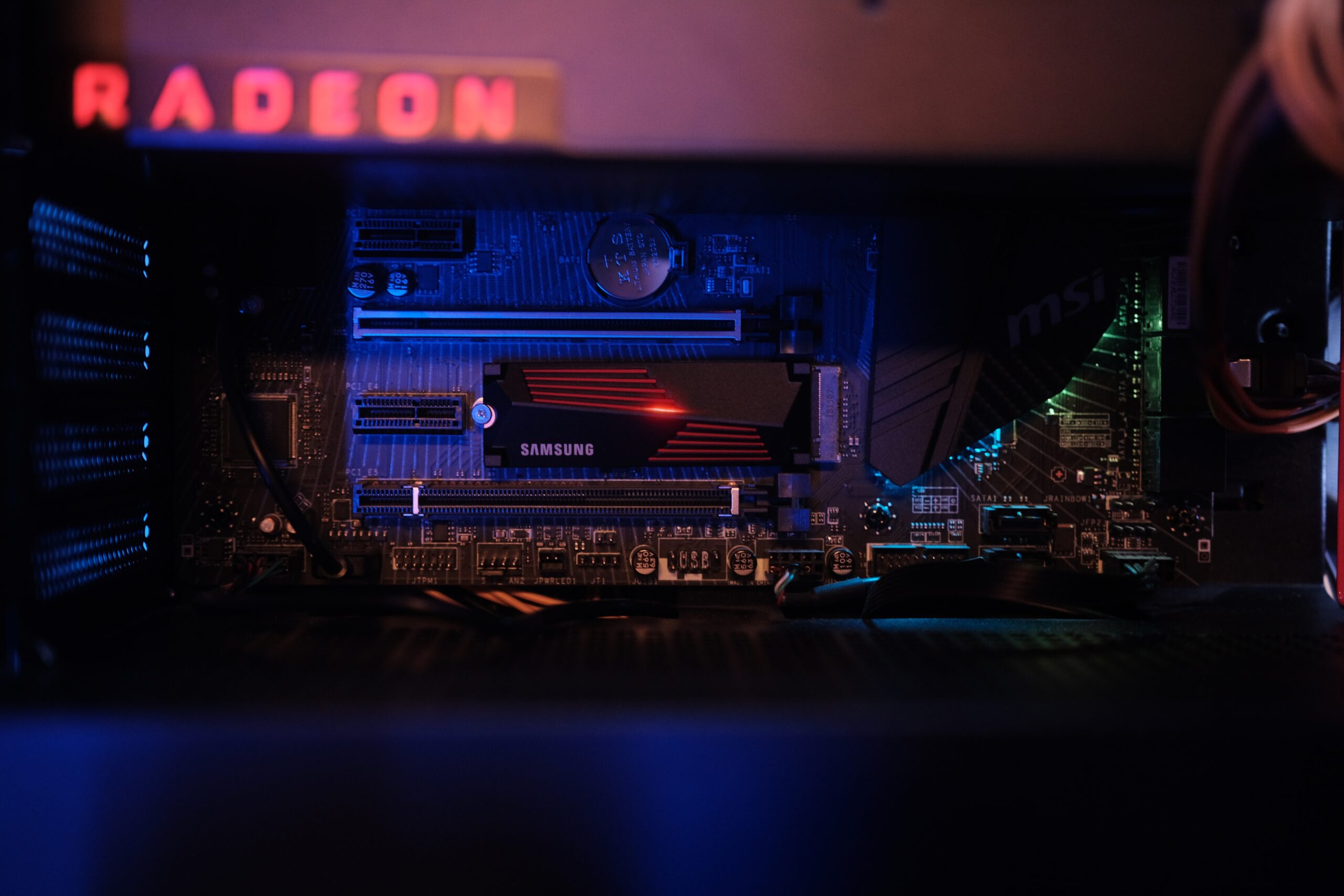In the fast-paced world of music, technology is constantly evolving, revolutionizing both the production and consumption of our favorite tunes. From advanced recording techniques to innovative streaming platforms, these technologies have undoubtedly shaped the future of music. In this article, we will explore some of the most groundbreaking technologies that are transforming the way music is made and enjoyed. So, grab your headphones and get ready to embark on a journey into the exciting world of music technology.
Impact of Technology on Traditional Music Production
Evolution from analog to digital production
Technology has revolutionized the way music is produced, with the evolution from analog to digital production being one of the most significant advancements. Traditional music production involved complex analog equipment, such as reel-to-reel tape machines and mixing consoles. However, digital production has made the process more streamlined and accessible. Digital audio workstations (DAWs) now enable musicians to record, edit, and mix music using software on their computers. This shift has significantly lowered the barriers to entry for aspiring musicians, allowing them to create professional-quality music from the comfort of their own homes.
Changes in recording and mixing
The advent of digital production has also brought about significant changes in recording and mixing techniques. In the past, recording sessions were typically done in expensive recording studios, using multiple tracks and layering different instruments and vocals. However, with the advancements in technology, musicians can now record their music in their own home studios using affordable equipment. Additionally, digital tools have made it easier to manipulate and enhance recordings during the mixing process. Effects such as reverb, delay, and compression can be easily applied and adjusted with just a few clicks, giving musicians greater control over the final sound of their music.
Economies of scale in music production
Technology has also brought about economies of scale in music production. In the past, producing physical copies of music, such as CDs or vinyl records, required a significant financial investment. However, with the rise of digital distribution platforms and on-demand printing services, musicians can now release their music to a global audience with minimal upfront costs. This has opened up opportunities for independent musicians and small record labels to compete with major industry players. Additionally, the shift towards digital streaming has allowed musicians to reach a larger audience and generate revenue through platforms such as Spotify and Apple Music.
Emerging Technologies Pioneering New Sounds
Artificial Intelligence in composition
Artificial Intelligence (AI) has made significant strides in the field of music composition. AI algorithms can analyze large datasets of music and generate new compositions based on patterns and trends found in the data. This technology has the potential to revolutionize the creative process by providing musicians with new ideas and inspiration. However, there is an ongoing debate about the role of AI in music creation and concerns about the impact on the authenticity and originality of music.
Virtual Reality in music experience
Virtual Reality (VR) technology has the ability to transform the way we experience music. VR headsets allow users to immerse themselves in a virtual environment where they can interact with and manipulate music in unique ways. Imagine attending a concert from the comfort of your own home, standing on stage with your favorite artist or exploring a virtual music festival. VR has the potential to enhance the concert experience by offering unprecedented levels of immersion and interactivity.
Augmented Reality in live performances
Augmented Reality (AR) technology is another exciting development in the music industry. AR overlays virtual elements onto the real world, creating a mixed reality experience for the user. In live performances, AR can be used to enhance the visual elements of a show, creating stunning visuals and unique stage setups. Imagine watching your favorite artist perform while virtual objects and animations interact with the real-world environment. AR has the potential to revolutionize live performances by blurring the boundaries between the physical and virtual worlds.

Role of the Internet in Music Distribution and Marketing
On-demand streaming services
The rise of on-demand streaming services such as Spotify, Apple Music, and Tidal has transformed the way music is distributed and consumed. These platforms allow users to access an extensive catalog of music from various genres and artists with just a few clicks. This shift from ownership to access has resulted in a significant decline in physical sales, but it has also allowed more music to be heard by a larger audience. Musicians can now reach fans from all over the world, and streaming services provide opportunities for exposure and revenue through royalties.
Music discovery through algorithm-based recommendations
The internet has also revolutionized the way we discover new music. Algorithm-based recommendations and personalized playlists on streaming platforms have become an integral part of how people find and explore music. These algorithms analyze user behavior and preferences to offer tailored suggestions, exposing listeners to a wide range of artists and genres they may not have discovered otherwise. This has opened up new opportunities for emerging musicians to gain exposure and connect with fans on a global scale.
Social media and viral music marketing
Social media platforms like Instagram, Twitter, and TikTok have become powerful tools for music marketing. Artists can build a strong online presence, engage with fans, and share their music directly with their audience. Social media algorithms and the potential for content to go viral have given musicians the ability to reach millions of people instantaneously. From viral dance challenges to organic word-of-mouth promotion, social media has become an essential part of the music marketing landscape, allowing artists to connect with their fans in a more direct and personal way.
Transformations in Consumers’ Music Experience
From ownership to access
The shift from physical ownership to digital access has transformed consumers’ music experience. In the past, music fans collected physical copies of albums, CDs, and vinyl records. However, with the rise of streaming services and digital downloads, consumers now have access to a vast library of music at their fingertips. This has allowed for greater variety in their music consumption habits and the ability to discover new artists and genres easily.
Interactive and personalized music experience
Technology has also enabled interactive and personalized music experiences. Music streaming platforms now offer features such as curated playlists, personalized recommendations, and the ability to create custom playlists. Additionally, interactive music apps and games allow users to engage with music in unique ways, such as remixing songs or playing along with their favorite artists. These interactive experiences enhance the connection between music and the listener, making the overall experience more immersive and personal.
Immersive concert experience through VR and AR
Virtual Reality (VR) and Augmented Reality (AR) technologies have the potential to revolutionize the concert experience. With VR, users can attend virtual concerts, where they are transported to a digital venue and can interact with the virtual environment and other concertgoers. AR, on the other hand, can enhance the live concert experience by overlaying virtual elements onto the real-world setting, creating a visually stunning and interactive show. These technologies have the power to make concerts more accessible, engaging, and memorable for music fans.

Rise Of Home Production and DIY Musicians
Accessibility of music production tools
Technology has made music production more accessible than ever before. The affordability and portability of digital recording equipment, such as audio interfaces, MIDI controllers, and software plugins, have empowered musicians to create professional-quality recordings from their homes. The rise of YouTube tutorials and online communities has provided valuable resources and support for aspiring musicians to learn and improve their skills. This accessibility has given rise to a new wave of DIY musicians who can produce, record, and release their music independently.
Crowd-sourcing and crowdfunding in music
Crowd-sourcing and crowdfunding platforms have been instrumental in supporting independent musicians. These platforms, such as Kickstarter and Patreon, allow artists to engage directly with their fans and receive financial support for their projects. Musicians can crowdfund the production of an album, finance a music video, or fund a tour, providing them with the resources they need to pursue their creative endeavors. This direct connection between artists and fans has created a sense of community and collaboration, empowering musicians to create and release music on their terms.
Impact on independent music scene
The rise of home production and the accessibility of music production tools have had a profound impact on the independent music scene. Independent artists can now produce and release music without the need for a traditional record label. This has democratized the music industry, allowing artists to maintain creative control and ownership of their work. Additionally, the internet and social media have provided independent musicians with a platform to reach a global audience and connect with fans directly. As a result, the independent music scene has flourished, with a diverse range of artists and genres gaining recognition and success.
Changes in Music Monetization Models
Shift from physical sales to streaming revenue
The music industry has experienced a significant shift in monetization models, moving away from physical sales and towards streaming revenue. With the rise of on-demand streaming platforms, music consumption has become more centered around access rather than ownership. This shift has had both positive and negative effects on the industry. On one hand, artists can now reach a larger audience and generate revenue through streaming royalties. On the other hand, the decline in physical sales has led to concerns about the sustainability of the music industry and the ability for artists to make a living from their music alone.
Influence of technologies on copyright management
Technology has also had a profound impact on copyright management in the music industry. With the ease of digital distribution and the proliferation of music-sharing platforms, copyright infringement has become a significant concern. However, technology has also provided solutions to this issue. Digital rights management (DRM) systems and content identification algorithms now help protect artists’ intellectual property rights and ensure fair compensation for their work. These technologies have been instrumental in combating piracy and creating a more secure and transparent environment for music distribution.
Revenue diversification through merchandise and virtual gigs
To adapt to the changing music monetization models, artists have turned to revenue diversification strategies. Merchandise, such as t-shirts, posters, and limited-edition vinyl, has become a popular way for artists to generate additional income and engage with their fans directly. Additionally, virtual gigs and live-streamed performances have gained traction, especially in the wake of the COVID-19 pandemic. These virtual events allow artists to connect with their audience in real-time and offer unique experiences and exclusive content. By diversifying their revenue streams, artists can mitigate the challenges posed by the evolving music industry landscape.

Technological Innovations in Music Education
Music creation apps for education
Technology has transformed music education by offering interactive and engaging tools for learning and music creation. Music creation apps, such as GarageBand and FL Studio Mobile, provide aspiring musicians with the opportunity to experiment with different instruments, record their compositions, and learn about music theory. These apps make music education more accessible, fun, and hands-on, allowing students to develop their skills at their own pace.
Online platforms and courses for music learning
Online platforms and courses have also become popular options for music learning. Websites like Udemy and Coursera offer a wide range of music-related courses taught by industry professionals. These courses cover various aspects of music production, composition, and theory, providing aspiring musicians with valuable knowledge and skills. Online learning platforms have made music education more flexible and convenient, allowing individuals to learn from the comfort of their own homes and at their own pace.
Virtual reality in music education
Virtual Reality (VR) technology has the potential to revolutionize music education by providing immersive and interactive learning experiences. With VR, students can step into virtual music studios, concert halls, and classrooms, where they can interact with virtual instruments, learn from virtual teachers, and participate in virtual performances. This technology offers a more engaging and hands-on learning environment, allowing students to develop their musical abilities in a realistic and dynamic setting.
Challenges and Criticisms Towards Technological Interventions
Concerns about authenticity and originality
One of the primary concerns regarding technological interventions in music is the potential impact on authenticity and originality. With the rise of AI-generated music and algorithms that create formulaic pop hits, some critics argue that technology could stifle creativity and lead to a homogenization of music. There is a fear that the unique human element and artistic expression could be lost in the pursuit of efficiency and commercial success.
Debate about AI’s role in music creation
The role of Artificial Intelligence (AI) in music creation is a topic of debate in the industry. While some view AI as a powerful tool that can enhance the creative process and offer new possibilities, others raise ethical concerns about AI mimicking human creativity. There are questions about whether AI-generated music can be considered true art and whether it undermines the role of human musicians. The debate surrounding AI’s role in music creation is ongoing, and it raises important questions about the nature of creativity and the future of artistic expression.
Inequalities in music consumption and revenue from streaming services
Despite the benefits of technology in music production and distribution, there are concerns about inequalities in music consumption and revenue from streaming services. Streaming platforms often favor popular artists and mainstream genres, making it challenging for niche and independent musicians to gain visibility and generate substantial income. Additionally, the complex algorithms used by streaming platforms may perpetuate existing biases and limit access to diverse and underrepresented artists. As technology continues to shape the music industry, it is crucial to address these inequalities and ensure a fair and inclusive ecosystem for all musicians.

Future of Music Industry: Predictions and Possibilities
Impact of further AI advancements on music
As AI technology continues to advance, its impact on the music industry is likely to grow. AI algorithms could become more sophisticated in generating music that emulates different styles and genres with remarkable accuracy. This opens up possibilities for musicians to collaborate with AI tools, using them as creative partners to explore new musical territories. Additionally, AI could play a role in enhancing the live concert experience by creating dynamic and interactive visuals that respond to the music in real-time.
More immersive music experiences
The future of music is poised to be more immersive than ever before. Technologies such as Virtual Reality (VR) and Augmented Reality (AR) have the potential to transform the way we experience music by creating virtual and mixed-reality environments. Imagine attending a concert where you can walk through a digital landscape that reacts to the music, or using AR glasses to see virtual band members performing alongside real musicians. These immersive experiences could revolutionize the way we connect with music on a sensory and emotional level.
Revolutionizing music collaborations
Technology has already greatly facilitated collaboration between musicians, regardless of geographic location. However, the future holds even more exciting possibilities. With advancements in communication technology and virtual reality, musicians from across the globe could collaborate in real-time, as if they were in the same room. This opens up the potential for diverse and cross-cultural collaborations, pushing the boundaries of musical creativity and expanding the horizons of what is possible in music production.
Case Studies: Success Stories of Technology Utilization in Music
Notable artists embracing technology
Many notable artists have embraced technology in their music production and performances. One such example is Björk, who has incorporated VR technology into her live shows, creating immersive experiences for her audience. Another example is the band Radiohead, known for their innovative use of technology in both their music production and distribution. From releasing albums as “pay-what-you-want” downloads to utilizing unconventional recording techniques, Radiohead has consistently pushed the boundaries of what is possible in music.
Successful implementation of AI in music creation
AI has already made significant strides in music creation, with several successful implementations. OpenAI’s “MuseNet” is an AI system that can compose original music in various styles and genres, demonstrating the potential for AI to create complex and emotive compositions. Another example is the AI-powered software “Amper Music,” which allows users to create custom music tracks for videos and other media. These success stories highlight the exciting possibilities of AI in music creation and its role as a powerful tool for artists.
Popular uses of VR and AR in music
Virtual Reality (VR) and Augmented Reality (AR) have been utilized in various ways within the music industry. The band Gorillaz has famously integrated animated virtual band members into their performances, blurring the line between reality and fantasy. AR apps, such as “Oats Studio” by musician Mike Shinoda, enable fans to unlock hidden content and experiences through their smartphones. These examples showcase the unique and immersive experiences that VR and AR can offer in the realm of music.
In conclusion, technology has had a profound impact on every aspect of the music industry, from production and distribution to education and consumption. The evolution from analog to digital production has democratized music creation, allowing musicians to record and mix their music with ease. Emerging technologies such as Artificial Intelligence (AI), Virtual Reality (VR), and Augmented Reality (AR) are pioneering new sounds and transforming the way we experience music. The internet has revolutionized music distribution and marketing, enabling artists to reach a global audience and connect with fans directly. Consumers’ music experiences have been transformed, shifting from ownership to access and becoming more interactive and personalized. The rise of home production and DIY musicians has empowered independent artists and fueled the vibrant independent music scene. Changes in music monetization models, fueled by the rise of streaming revenue, have reshaped the industry’s revenue streams. Technological innovations in music education have made learning more accessible and engaging for aspiring musicians. However, these advancements are not without challenges and criticisms, including concerns about authenticity and originality, debates about AI’s role in music creation, and inequalities in music consumption and revenue. Looking to the future, further advancements in AI, more immersive music experiences, and revolutionized music collaborations are predicted. A number of case studies have already showcased the successful implementation of technology in music, from notable artists embracing technology to the popular uses of VR and AR. With technology as a driving force, the music industry is continuously evolving and paving the way for new possibilities and creative expressions.











